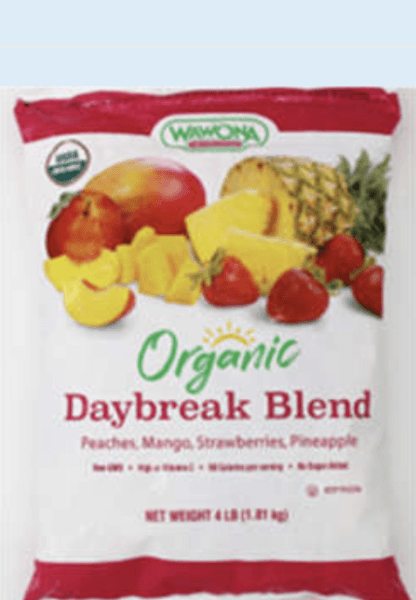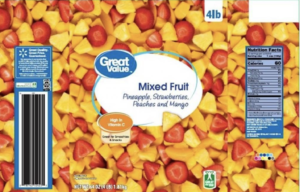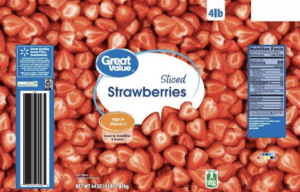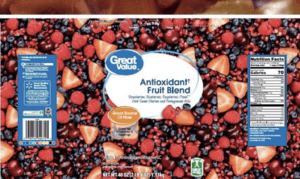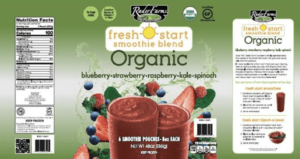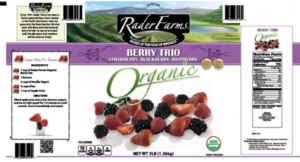Hepatitis A outbreak linked to more frozen strawberry products, according to the Food and Drug Administration
The Food and Drug Administration (FDA) has found more brands of frozen strawberries that may be tainted as part of an ongoing investigation into a multistage outbreak of hepatitis A illnesses. There is a new recall involving five goods.
The new data includes frozen strawberry goods marketed by Willamette Valley Fruit and sold under the Great Value and Rader Farms brands at Walmart, Costco, and HEB. The affected items have been recalled by the manufacturer.
As of June 13, nine people in three states had fallen ill due to the outbreak. There have been three cases of illnesses severe enough to warrant hospitalization. There have been no reported fatalities. Washington, Oregon, and California have a high population of sick people.
Frozen mixed fruit in 4-pound bags, sliced strawberries in 4-pound bags, and antioxidant fruit blends in 2-pound bags are all part of the Great Value recall.
Source:US FDA
Arkansas, Arizona, California, Colorado, Hawaii, Iowa, Idaho, Illinois, Indiana, Kansas, Kentucky, Louisiana, Maryland, Michigan, Minnesota, Missouri, Montana, North Dakota, Nebraska, Nevada, New York, Ohio, Oklahoma, Oregon, Pennsylvania, South Dakota, Texas, Utah, Virginia, Wisconsin, West Virginia, and Wyoming had Great Value products at all Walmart locations.
Rader Farms is recalling their organic Fresh Start smoothie blend and organic berry trio offered at Costco and HEB, respectively.
Source:US FDA
Costco warehouses in Colorado, Texas, California, and Arizona carried Rader Farms’ organic Fresh Start smoothie blend. HEB grocery stores in Texas carried an organic berry trio from Rader Farms.
Several recalls related to the current outbreak have already been announced. Frozen strawberries from a single farming location in Mexico are the focus of all recalls.
Organic DayBreak Blend from Wawona Frozen Foods was recalled from Costco Wholesale locations in Arizona, California, Colorado, Utah, and Washington. Products from California Splendor were recalled from Costco locations in Los Angeles and Hawaii, as well as from two business centers in San Diego. Products from Scenic Fruit were recalled from Costco, Aldi, KeHE, Vital Choice Seafood, and PCC Community Markets in specific states. Meijer recalled some of its frozen strawberries because of the epidemic.
Wawona Frozen Foods and the Food and Drug Administration (FDA) in the United States have not, as of this moment, received any reports of illnesses or fatalities that have been linked to the eating of the product that has been recalled. Customers are strongly encouraged not to consume any of the recalled products and should instead throw them away.
Infections caused by consuming food that is contaminated with hepatitis A bacteria can lead to symptoms ranging from moderate and short-term to serious and long-term, with some cases even lasting for months. Infections can be caused by eating food that is infected with hepatitis A germs.
Wawona Frozen Foods Voluntarily Recalls Organic Daybreak Blend Processed and Sold in 2022 Due to Possible Health Risk https://t.co/BkdRzRYfnS pic.twitter.com/lDxrVum84o
— U.S. FDA Recalls (@FDArecalls) June 12, 2023
“This is not an exhaustive list of products or stores,” the FDA clarified in their latest announcement. The FDA is still working with the companies to see whether other product data might be useful.
The Hepatitis A virus
The hepatitis A virus (HAV) causes a contagious liver infection that can be prevented with a vaccine.
Anyone who has recently eaten frozen strawberries and is experiencing hepatitis A symptoms should consult their doctor immediately. Hepatitis A infections can be difficult to diagnose without specialized testing due to their similarity to other conditions.
Hepatitis A is not always manifested in obvious ways. Symptoms are more common in adults than in kids. Typically, symptoms manifest between 28 and 30 days after infection, though it can take as long as seven weeks. Although some people may remain sick for up to six months, the average duration of symptoms is less than two months.
Yellowing of the skin or eyes, loss of appetite, nausea, vomiting, abdominal discomfort, fever, chills, dark urine or light-colored feces, diarrhea, joint pain, and fatigue are all possible side effects.
People can spread the virus even if they aren’t showing any symptoms. Furthermore, hepatitis A can be spread for up to two weeks before symptoms develop.
